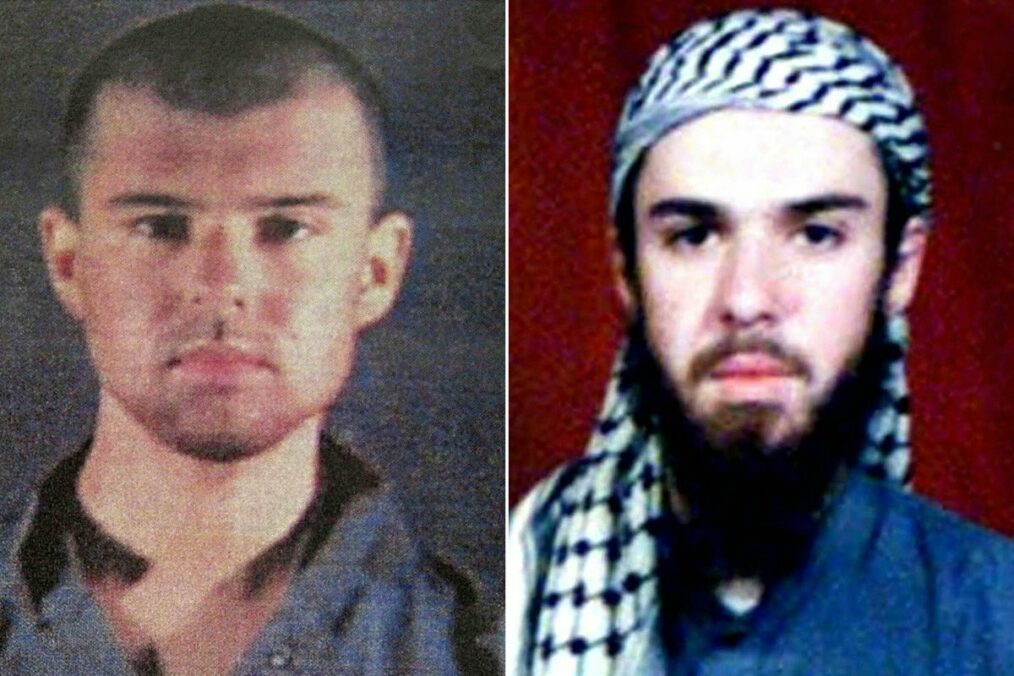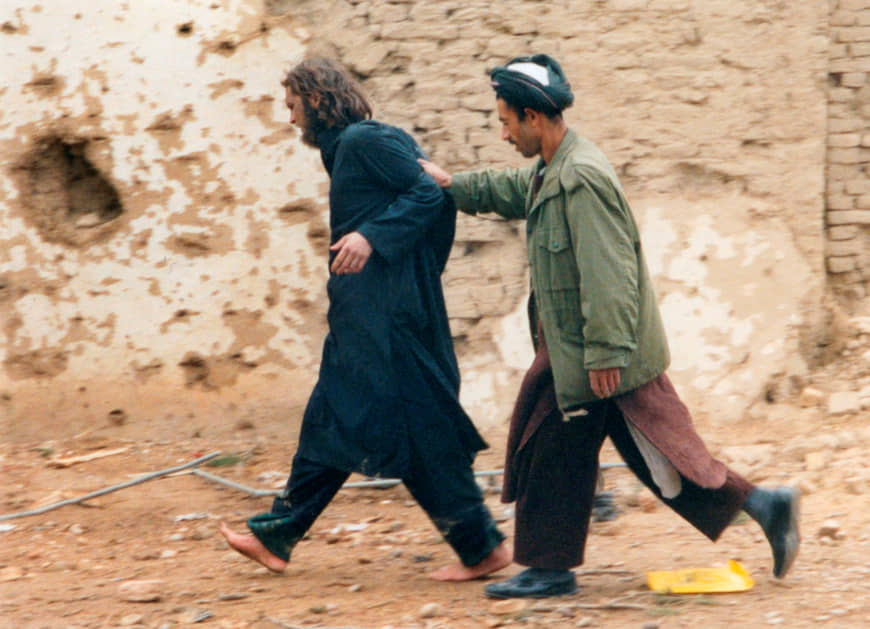
Can John Walker Lindh “American Taliban” Be De-radicalized?
The United States Federal Bureau of Prisons (FBOP) is set to release the “American Taliban”, John Walker Lindh, after serving 17 years of a 20-year sentence.
US Special Operations Forces and the Northern Alliance arrested the “American Taliban” in November 2001 in Afghanistan. A plea bargain with the US Department of Justice (DOJ) led Lindh to accept guilt for “supporting militants who harbored al-Qaeda as it planned the attacks of Sept. 11, 2001” in exchange for two decades of incarceration.
Origins of the “American Taliban”
Lindh was raised in California and Maryland. He converted to Islam at age 16 (prior to 9/11) and travelled to study Arabic in Yemen in 1998. All this occurred two months before the establishment of Google.
After Lindh completed Arabic lessons, he moved to Pakistan where encounters with members of extremist groups (al-Qaeda, Taliban) compelled him to settle in Afghanistan. There he received training at an al-Qaeda training camp as a Taliban militant.
In the 1990s, Pakistan served as the birthplace for the Taliban and it acted as the center of further extremist development. Operational planning, recruitment, equipping soldiers and brainwashing of children that were brought from vulnerable communities in Afghanistan occurred there. Pakistan recognized the Taliban regime, harbored Osama Bin Laden and supported the Islamic Emirate legacy until the present day.
Impediments to Reintegration
The US federal prison system has a lack of de-radicalization programs thus it is difficult to predict how well Lindh will adapt to reintegration. Certainly, it will be challenging for a person with radical philosophies, such as Lindh, to let go of his grievances and circulation of the mandate of the Islamic Emirate of the Taliban.
Digital technology and communications, such as Google, complicates the scenario for Lindh too. Access to swift and boundless information provides another possible impediment to de-radicalization. Law enforcement and the intelligence community must monitor and regulate his actions. As part of his release, “Mr. Lindh will also be barred from traveling internationally and getting a passport or any other kind of travel document.”
A young American teenager who made his way to Osama Bin Laden and revealed information to al-Qaeda will not cease unless he is de-radicalized. It is foolish to simply trust a loyal member of a terrorist group to renounce those attitudes.
For instance, in 2002, he denounced the 9/11 attacks as “completely against Islam” and tearfully told the judge “I have never supported terrorism in any form, and I never will…I made a mistake by joining the Taliban.” He maintained, “Had I realized then what I know now, I would never have joined them.”
This is in direct opposition to recent statements. In a 2017 report, Lindh “continued to advocate for global jihad and to write and translate violent extremist texts.” Was he further radicalized in the prison system during the US Iraq War in 2003 and later the Arab Spring?
Sober Reality and Solutions
Lindh can be de-radicalized and re-enter society if he is provided with necessary mentoring from those of a similar background while under supervision. If not, two possible reasons foretell why he will not exit his previous life of the 1990s-2000 so easily. First, he accepted his own version of Islam and joined the Taliban movement in Afghanistan. The Taliban view of Islam is harsh, extreme and is not Islamic. So, religiously, he is not going to change unless he is sent to a Muslim scholar to teach him the true Islam.
Second, his loyalty to the Taliban and al-Qaeda may not easily end because one feature that unites membership of terrorist organizations (ISIS, Boko Haram, Al-Shabab, and Taliban, etc.) is their dedication to the mission. They assert a lawful war “jihad” against the United States and allies is right.
Particularly, after 9/11 and the Iraq War, this concept became significant to justification of their actions. Simple operations such as detonating a bomb in a populated area or maneuvering a bus to kill innocent people contribute to a larger lawful war. To them, this is acceptable because their religion, Islam, is under threat by the “crusaders,” “capitalists,” and “infidels.”
There are 346 people convicted of terrorism since 2001 and 88 have since been released. For every convicted extremist facing release, the intelligence community and law enforcement agencies should devote significant attention to individual files and monitor the person 24/7 to prevent any attempt of violence.
Next, US government agencies should fund and support the Countering Violent Extremism (CVE, PVE) organizations so they can mentor and support Lindh as well as other related cases as part of the reintegration process.
The FBOP, DOJ, Federal Bureau of Investigations (FBI) and local governments have not yet developed a reintegration strategy to help foreign fighter extremists to reunite with his/her society. There is a substantial need for a comprehensive strategy in the prison system to begin de-radicalization and following programs to aid their reentrance into society.
De-radicalization is the very first step in connecting former extremists to society by helping the individual change his/her ideas and attitudes. It’s a system where the individual receives the opportunity needed to begin a new life, whether it’s granting access to job platforms, libraries, and training, or even an interpersonal or personal relationship to help heal the person’s grievances, beliefs, and confusion. In the case of Lindh, it’s imperative that he gets the support he needs in order to leave behind the radical thoughts and support for groups like ISIS and the Taliban. An engagement as simple as a conversation with a Muslim living in his community can help make a difference in his life.
Jesse Morton, a former extremist, assisted the FBI to arrest more radicals while he was “de-rad”. Jess left his radical thoughts behind as he went through a series of transformations in his life. First, the FBI agents support and non-judgmental demeanor towards him. Later, his employment as a Research Fellow on Extremism at the George Washington University. An finally, today, his organization, Light Upon Light, to counter extremism. Jesse Morton is one of the best examples that de-radicalization is possible and successful. The two individuals share enough similarities and commonalities to suggest that the de-radicalization process for Jesse will work for Lindh.
Ultimately, Lindh needs to understand that the groups (Taliban, ISIS) he advocated and fought for are wrong. To do so, he needs outside help the same way Jesse Morton did. Lindh converted to Islam as a teenager and shortly after joined the Taliban. Soon after that, he was arrested and placed behind bars for 17 years. He doesn’t fully understand the true meaning of Islam or what it means to live in a society where Muslims can pray, protest and work alongside non-Muslim peers in peace, acceptance, and appreciation.
Ahmad Mohibi is Founder and Director of Counter-terrorism at Rise to Peace, a non-profit organization, and a national security expert. He is a published author, journalist and news commentator on TOLONews, and an alumnus of George Washington University and George Mason University. Follow him on Twitter at @ahmadsmohibi


